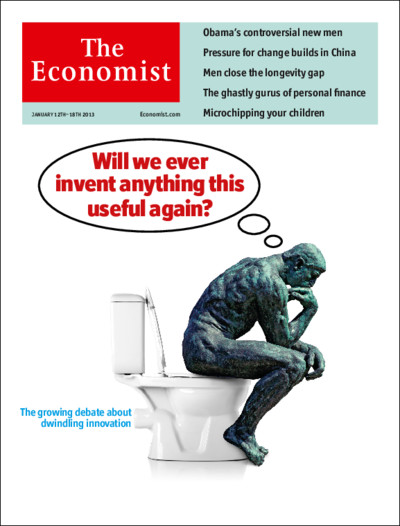Minnovation
It’s been awhile!
Like some of you, I’ve been having a hard time getting back into the swing of things post-holiday. The good thing is that I’ve waited so long that I’ve already bypassed all the New Year’s resolution stuff (thank goodness!) Perhaps you’ve also tired of the new and exciting goals you’ve read about and set for yourself. If so, you can join me in getting back down to the nitty-gritty.
I’m back to a few standard mundane thoughts here to kick-off 2013.
I’ve actually been thinking about a topic that is a tad bit depressing. It was brought on by a few trips to my local movie theater. I try to catch the new releases in the theater during the holidays, and like many of you, I watch most of the mainstream blockbusters in my local multi-level multi-screen cinema.
Two weeks ago, as I was happily en route on the up escalators to the screening room with popcorn in hand to Les Mis or Lincoln, I couldn’t help but notice the abundance of posters along the way advertising upcoming features. But what really disturbed me was the realization that most of the ads and cardboard paraphernalia for upcoming features were of movies that I had already seen before. Movies like Carrie, Superman: Man of Steel or the latest Marvel or DC iteration from their menu of superheroes.
This feeling only intensified as I settled into my seat to watch the movie previews, where I realized that: 1) I am old because I had already seen many of the original 80s/90s iterations of the movies being previewed; and 2) that mainstream Hollywood has run out of new ideas.
I came home and did some Internet digging, and found out that there are currently rumored to be over 50 movie re-makes in the works, including Carrie (March 2013), RoboCop (August 2013), Mad Max (2013), Point Break (2013), and Dirty Dancing (2014). And that’s not counting sequels or prequels like Man of Steel (June 2013) either. I mean, are we suffering from collective amnesia or didn’t we just see a Superman reboot in 2006 and the last Tobey Maguire Spider Man 3 in 2007? Ok, I admit, last year’s The Amazing Spider-Man (2012) was a slightly better movie than Spider Man 3, but it hasn’t even been 5 years, and the body isn’t even cold yet!
As for Man of Steel, you won’t get too many complaints from me because he’s probably my favorite superhero. Call it an undying crush on Christopher Reeve, but hey, everyone’s got to play favorites. I guess I am a typical Hollywood statistic because I’m willing to see the umpteenth Spider Man redux or Batman or Superman or whatever. I’m a part of the generation that is currently stuck in extended adolescence.
In explaining all the reboots, I suppose we are also in the 20-30-year range where all good stories or movies need to be re-done for another generation. It seems to be a formula that has had mixed success with 2012 movie versions of 21 Jump Street and Total Recall that grossed $138 and $59 million in the box office, respectively.
In any case, if you haven’t already noticed, the 80s are super in vogue right now.
Which brings up a very basic question. I know that like all things, fashion and trends tend towards cyclicality. But have we really run out of new ideas? I mean, even all action movie posters are starting to look all the same:
Ask yourself what was the last blockbuster you saw that literally blew your mind? It’s probably been years. The last movie I saw in the “mind-blown category” was Inception (2010), and ironically, you’ll find one version of its poster on the formulaic-action-movie-poster wall of shame above.
To be fair, the movie business is unique from traditional businesses with it’s own internal accounting and economy. Moviemaking has an inherently high upfront investment requirement with little guarantee of breaking even, let alone making any kind of return. Most films lose money (on paper and on purpose) and the market dynamics within the film industry (consolidation, concentration of revenues from fewer and fewer films) heightens risks, while the real money is being made on the back end in distribution rights and TV.
So understandably, the big studios have less and less tolerance for risk and increasingly rely on proven brands and sequels with a built-in audience to ensure more stable box office revenues. Think Fast and Furious 6, Die Hard 5, and Iron Man 3. While not super original and fairly predictable, they are certainly guaranteed to make a lot of money. And if I were a studio executive, that’s what I’d be going for too.
Call me a cynic, but outside of a few general fields of say engineering/technology and biology or medicine, there is nothing new under the sun as we in the developed world are living in an age of incremental or minimal innovation, or what I might call “Minnovation.” In line with this post, I thought I might have been one of the first to coin this not-so-clever catchphrase, but after a quick Google search, clearly there is a business academic quoted in a journal article that beat me to the punch in coining the phrase.
I guess you can officially call it a catchphrase: #minnovation
So imagine my surprise (and panic) when I saw the cover of this week’s Economist with a picture of Rodin’s Thinker atop the throne with a thought bubble thinking: “Will we invent anything this useful again?” Good question, and exactly the question I’ve been pondering all week! It’s as if the Economist editors read my mind.
I immediately thought to myself, “Crap (no pun intended) Angela, got to get on that blog post before next week’s Economist cover comes out lest you miss the Thinker on the toilet cover!” Of course after that thought had passed through my head, I procrastinated some more by reading the magazine article.
In the informative briefing article entitled “Innovation Pessimism: Has the ideas machine broken down?” the authors point out how we often misuse the terms “innovation” and “technology,” interchanging them, particularly in the business and entrepreneurial literature without articulating the difference between these two important concepts. This article made a simple delineation between the two: “Innovation and technology, though talked of almost interchangeably, are not the same thing. Innovation is what people newly know how to do. Technology is what they are actually doing: and that is what matters to the economy.”
The article starts off with relatively pessimistic overtones and ominous charts showing flattening and decreasing productivity measures in the US, but it ends with some important conclusions. One of them is the concept of the cumulative effect of technological innovation as exponential (for example, Moore’s Law.) Thus, new iterations of innovation have the potential to deliver technological jolts as powerful as all previous rounds combined, with some economies better suited than others to this rate of change.
Another point is the role of government in instituting big sweeping technological advances (like in defense technology, or the Apollo space program and science education in the US.) The government’s role is critical, particularly if the military-industrial complex feeds these nascent technologies. However, despite the government’s initial role in funding, subsidizing, and promoting certain technologies, government agencies often over-regulate and beauracratize, thereby stifling innovation. (Solar energy and Solyndra come to mind.)
Thus we often find disparity between the government, and the interests of private investment in big game-changing ideas. This is because “private investors rationally prefer modest business models with a reasonably short time to profit and cash out.” Just like in the movie industry, private investors are generally risk-averse and prefer to adhere to market realities that yield more promising returns and clear exit strategies.
Going back to my poor movie studio analogy, perhaps the big budget blockbusters are akin to government-backed technologies, while independent movies are closer to private-sector investments. While big studio movies tend to be formulaic, some of them can be terrific and very good. But likewise, I’ve also been blown away by quite a few the indie and foreign movies outside of the studio system.
One final bright spot highlighted in the Economist article is the growth occurring in emerging markets relative to developed ones. “The larger the size of the global market, the more the world benefits from a given new idea, since it can then be applied across more activities and more people.” However the main risk to advanced and developed economies may not be the pace of innovation, but that certain institutions have become too rigid to accommodate truly revolutionary changes. (As an example, think about what pervasive electric cars in the US might do to change our current economy.)
Like mind-blowing movies, good ideas are hard to come by, and are often the result of years and decades of incremental research and groundwork. Truly innovative ideas have the capacity to transform our world and shape the way in which we live. But equally so, a unique combination of existing ideas that form into a new and easily implementable solution to a real world problem can also become a technological reality. This new technological knowledge also helps add productive and discernible growth to our economy and our society. We ought to recognize this synthesis as being just as valuable.
In Chapter 11 of his bestselling book, The Myths of Innovation, Scott Berkun talks about how we tend to overuse words like “disruptive,” “innovation,” “radical,” and “game-changing.” In this section of his book, he outlines what he calls a “simple plan” to simply find good ideas and to bring these good ideas to reality:
1) Pick a project and start doing something
2) Forget innovation: focus on being good
3) If you work with others, you need leadership and trust
4) If you work with others, and things are not going well, make your team smaller
5) Be happy about interesting “mistakes”
As this year starts off, I for one am trying to follow some of Berkun’s advice and to move away from reading a lot of books about good ideas, towards refining some of my own ideas and taking active steps to make them into a reality. And while I’m still a sucker for that big blockbuster superhero movie (ok, who else is excited about June 14th?) I’ve also come to realize that small but tangible incremental steps in staying motivated about your own passions and dreams, coupled with the unsexy process of hard work and learning from your mistakes, will ultimately yield the most gratification. There might even be a good idea in there somewhere.
Happy Friday!




Very nice blog entry. Probbaly the best I’ve read this month (year!), except for Sophie Google Daughter’s about North Korea – but that was about North Korea, so you had no real hope of winning 🙂
It depends on your angle of what will be innovated … I mean some of it cannot be imagined, or it would be done already. But point number 2 (I do not mean the toilet) is something that I have been thinking about recently as well.
Reblogged this on Developing City.
Thanks for the kind comments, and for the RT! Much appreciated. Wow, high praise for being compared to Sophie’s trip to DPRK… or anything about DPRK, for that matter. Yes, I agree that there are limits to the stories we tell and what we can re-imagine or create (as in my examples of Hollywood films.) But I guess my basic point is that it doesn’t really matter, so long as we are committed to doing good work, which also entails seeking recombinations of good ideas that somehow solve real problems. I guess I just get annoyed when I see certain business and marketing catchphrases that have ultimately become meaningless, which is why I appreciate Scott Berkun’s simple plan.
Pingback: How to Write a Successful Hollywood Film » Jen Frankel